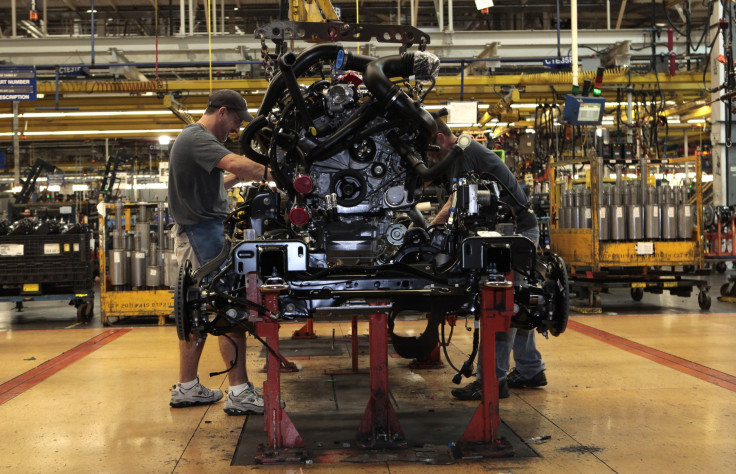United Auto Workers Contract Talks 2015: UAW Convenes To Discuss Bargaining With Ford, General Motors, Chrysler

Hundreds of United Auto Workers delegates gather this week in Detroit to talk strategy. Kicking off on Tuesday, the union’s two-day Special Convention on Collective Bargaining comes months before the UAW enters major contract negotiations with Big Three automakers Ford, General Motors and Chrysler.
The quadrennial confab offers a glimpse into what UAW rank-and-filers hope to win from those talks, which cover 43 percent of the union’s roughly 400,000 members. As the Wall Street Journal and Detroit Free Press report, demands to abolish two-tiered wage structures and boost employee pay are percolating this year.
In 2007, the UAW agreed to allow each of the Big Three to hire new employees at around $14 an hour, roughly half the union’s standard rate, though that hourly wage has since ticked up to about $16. Tiered wages are controversial within union ranks: "Equal pay for equal work is a basic civil and human right,” reads one newsletter distributed at the convention. “Two-tier fosters an ‘us and them’ mentality on the plant floor." Critics also say tiered wages degrade labor standards over time, since lower-paid newer hires eventually replace the old guard when retirement calls.
The new wage structure didn’t have a huge impact at first, as the U.S. spiraled into a historic recession, resulting in thousands of auto industry layoffs and a government bailout of General Motors. But the industry has rebounded. Since the last labor deal was signed in 2011, the Big Three have posted more than $70 billion in operating profits, according to the Wall Street Journal. Together, they’ve hired about 20,000 new employees since 2010.
Workers at the $28 pay grade want a raise too. They haven’t seen a baseline pay hike in a decade and want union negotiators to push that demand, reports the Detroit Free Press.
The improving industry landscape gives the UAW more leverage than it had in recent bargaining rounds, but other challenges loom: Non-union competitors like Toyota and Honda exert constant pressure on the Big Three to keep labor costs in check. (Chrysler is now FCA US LLC, a unit of Fiat.) And the UAW’s home state of Michigan recently went “right-to-work,” which means that unions there are no longer authorized to deduct fees from all the workers they represent. Such laws tend to put strain on union membership and finances. When the new contract takes effect, auto workers can choose whether ot not to keep financially backing the UAW.
The UAW’s older employees earn about $8 hourly more than average American manufacturing worker, according to the Bureau of Labor Statistics. Membership is about a fourth of its size in 1979, when it peaked at 1.5 million workers.
© Copyright IBTimes 2024. All rights reserved.





















